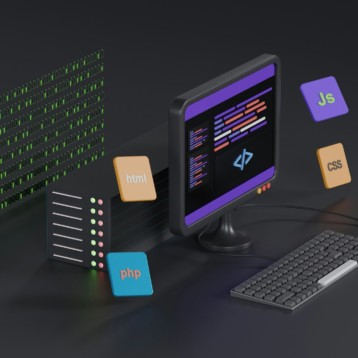 Image source: Unsplash
Image source: Unsplash
Few things can be more expensive and unproductive than a poorly planned business event. In fact, whether you hold a large-scale conference to generate leads or a smaller gathering to spread the word about your expanding company, you need help and good organizational skills to avoid a time-wasting, money-squandering scenario that falls short of its goals. In the worst possible case, and this is not unlikely to happen, you can even repel attendees in the long run due to the first impression you can’t erase.
Event management software, as the name indicates, is a professional organizational solution to assist you in the troublesome aspects of event organization and management. As is the case with software in general, there are basic indispensable features a good event management solution should have. Let’s look at them.
1. Event website
Building a website has never been easier than today, so the absence of a page or the presence of an unprofessional one have both become unforgivable mistakes. A functional website ranks second in effectiveness in business events, together with social media. It is easy to see that your event’s landing page represents more than simply your event; it ultimately represents your brand. Due to that, a professional-looking landing page is a must in any event management system.
2. Event registration
There can be no successful event if there are obstacles between it and its audience, and let us never forget the burden is on the planners, not the attendees, to ensure a smooth registration process. With that in mind, useful event management software is that which manages to ticket for you; preferably online because that is where people are and want to be.
As we all know, businesspeople have busy schedules and need to be convinced to spend their time on anything, so an overcomplicated registering process will damage your event’s attendance. Statistics show that 25% of people will abandon a purchase when presented with a long registration form to fill out, for example. As a result, that might subsequently cast a negative aura on your brand.
That means registration must be not only available online but also optimized for mobile devices. “Mobile-friendly” is an important concept to remember at a time when we are so dependent on our phones—if it can’t be done by using a phone, it might not be done at all.
Online registration conducted in advance will stimulate a higher number of people to register, so even if there is a noticeable difference between those who register and those who actually attend the event, the latter will be higher than if admission is done at the door.
3. Payment processing
Registration payments can be processed through different ways to accommodate different needs. Without software managing payments for you, integrating fees and registration (and generating invoices) can be an extra headache on top of regular preparations.
In addition to being more difficult, it can cost you money, since a poorly executed registration-payment flow puts registrants off right at the checkout page. If you don’t want to become a number in abandonment rate (the number can be as high as 69%), you need a reliable and fluid integration. Dispensing with more form filling is also beneficial since a staggering 81% of people lose interest and don’t complete forms after they have started filling them out.
4. Email marketing and communication
An appealing invitation works as a first impression. The fact that each element related to the event represents your brand to some extent means that every detail in how attendees are informed about the event matters. Sending personalized, professional invitations will help decrease the difficulty of getting invitees to respond in the first place.
The best event management software boasts templates and tracking features, ensuring optimal communication through the smallest effort. Like many other processes, communication can be automated, which means the software is able to email guests regularly according to a schedule in order to maintain their interest and keep awareness of your event high.
An extra step involves communicating after the event to thank them for their participation and leaving a positive impression of one who cares. Data indicates that more than 60% of leads are not followed up after the event is held, but this terrifying number can be mitigated with effective communication.
In addition to that, there is no better opportunity to gather feedback, because no one can assess your event with more knowledge and honesty than those who poured fee money and personal time to be there. You can achieve this goal through a quick post-event survey and/or form. However, remember that not everyone is fond of providing feedback, and many will even give up on the purchase itself at the sight of a form, so keep it brief and straightforward.
5. Budget management
One of the best ways to assess your event’s success is to measure its ROI, a task made simpler and more precise when a reliable tool keeps track of your expenses for you instead of your having to mind a spreadsheet. And considering the nature of any medium to large size event, they might add up to a high number—from venue renting to refreshments. Simply put, sales increases and social media engagement are some of the criteria beyond ticket sales revenue that a business has to keep track of after the event. These are then compared to the pre-event period to calculate the event’s success.
On a final note
Event management software worth your money must have the features your particular event needs, so considering what those needs are is essential to succeed in choosing. If, for instance, your business operates in the B2B domain and the attendees are fewer than in a B2C event, the follow-up communication demands emphasis. Whatever your situation and choice, a personalized event management solution that delivers on these fronts will set your event on the right track.










